How to Sign Up for Medicare During Your Initial Enrollment Period - AARP
You're eligible for Medicare at 65, but enrollment isn't always automatic.
If you've received Social Security retirement benefits for at least four months before your 65th birthday, you will be enrolled automatically in Parts A and B of Medicare at the beginning of the month you turn 65. If your birthday is on the first day of a month, your coverage will start a month earlier.
Since the full retirement age is 66 or older for people born in 1943 or later, most people haven't signed up for Social Security benefits by 65. That means they need to take steps to enroll in Medicare.
You can sign up for Medicare only at certain times. You can enroll during your seven-month initial enrollment period, which starts on the first day of the month three months before the month you turn 65 and lasts through the three months after the birthday month. Most people enroll in Parts A and B, but you may decide to sign up for just Part A.
Medicare Part A helps pay hospital costs and some skilled nursing care after a hospital stay as an inpatient. Most people don't pay premiums for Part A because they or their spouse had Medicare taxes deducted from their paychecks for at least 10 years. Part B helps pay for doctor visits and other outpatient services, such as lab tests, medical equipment and X-rays, and costs $170.10 a month for most people in 2022.
You can delay enrolling in Part B if you are — or your spouse is — still working and either of you has health insurance from an employer with 20 or more employees. This job-based coverage from a current employer — not retiree health insurance or COBRA, which allows most people to stay on their company's insurance plan for up to 18 months after they leave their job — is what will allow you to defer signing up for Part B.
The easiest way to sign up during your initial enrollment period is at the Social Security website. If you don't want to sign up online using the instructions below, you may be able to apply at a local Social Security office. Social Security offices have been closed except for emergency cases during the COVID-19 pandemic. Contact your local office to find out whether you can go in person or call Social Security at 800-772-1213.
Step by step through the online process
1. To sign up, go to the Social Security Administration website. Click the Apply for Medicare Only button.
2. You'll need to accept the terms of service. After you've done that, click Next. On the Apply for Benefits page, choose Start a New Application. Note that you will be asked to sign in to your online Social Security account or create one.
3. On the next screen, indicate whether you have an online Social Security account.
4. If you have an online Social Security account, you'll need to log in.
5. After you've logged in to your account, you'll need to provide personal information.
6. On the next screen, you'll need to answer a question about your Medicare application. Click Yes.
7. If you want to sign up for Part B benefits in addition to Part A, click Yes.
8. Now provide information about your group health plan, employment and health insurance.
9. After you've answered those questions, you'll be ready to sign your application. Check the box and click the Submit Now button. You'll receive a receipt that you can print and keep for your records. You'll also get a number you can use to check on the status of your application.
About two weeks after you sign up, you'll get your Medicare card in the mail, along with your Welcome to Medicare package.
Starting on the date listed on the front of the card, you should bring the card to all your doctor's appointments and to the hospital.
Images: Social Security Administration (ssa.gov) and Medicare.gov
Kimberly Lankford is a contributing writer who covers personal finance and Medicare. She previously wrote for Kiplinger's Personal Finance magazine, and her articles have also appeared in U.S. News & World Report, The Washington Post and The Boston Globe. She received the personal finance Best in Business award from the Society of American Business Editors and Writers.
More on Medicare
- How much does Medicare cost?
- Medicare eligibility: Do you qualify?
- 7 things Medicare doesn't cover


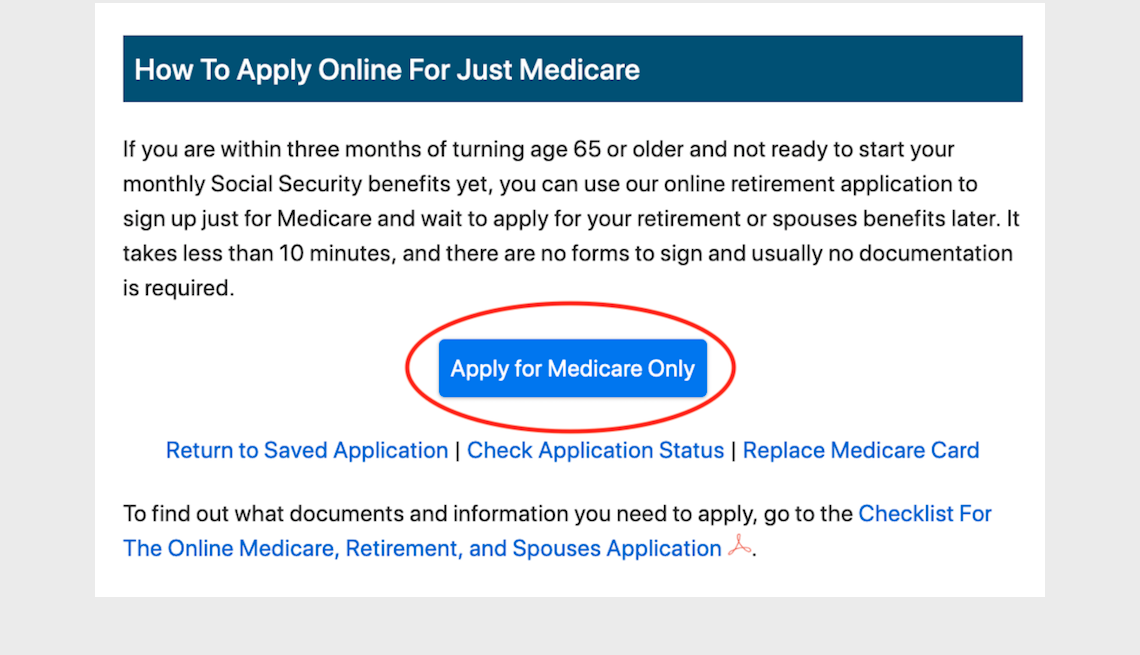
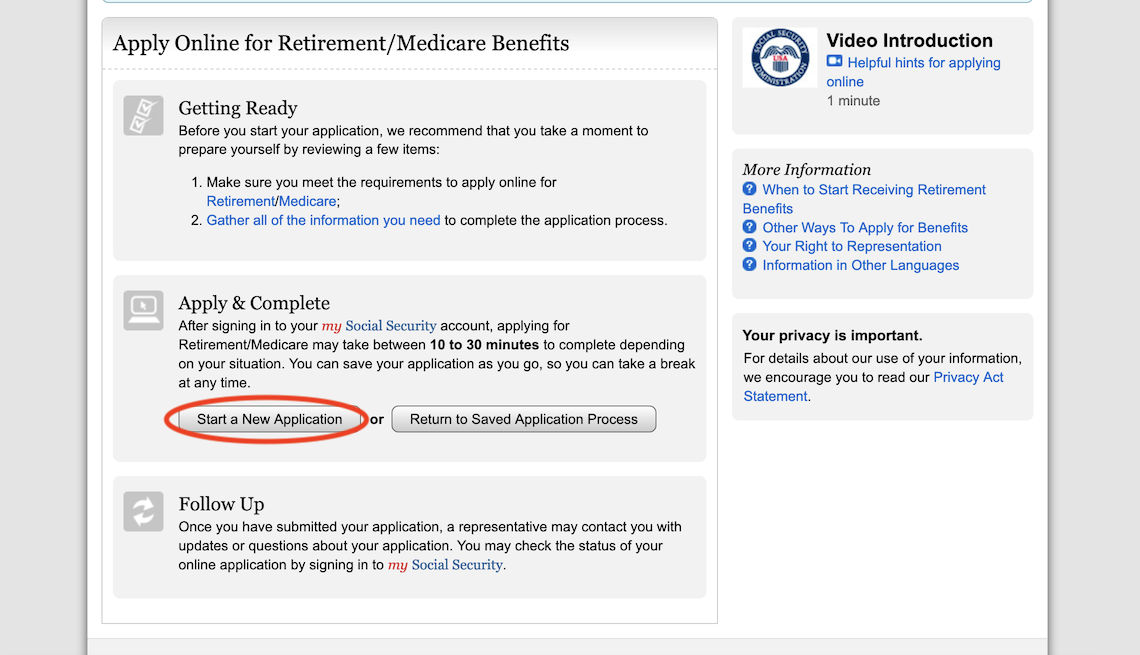
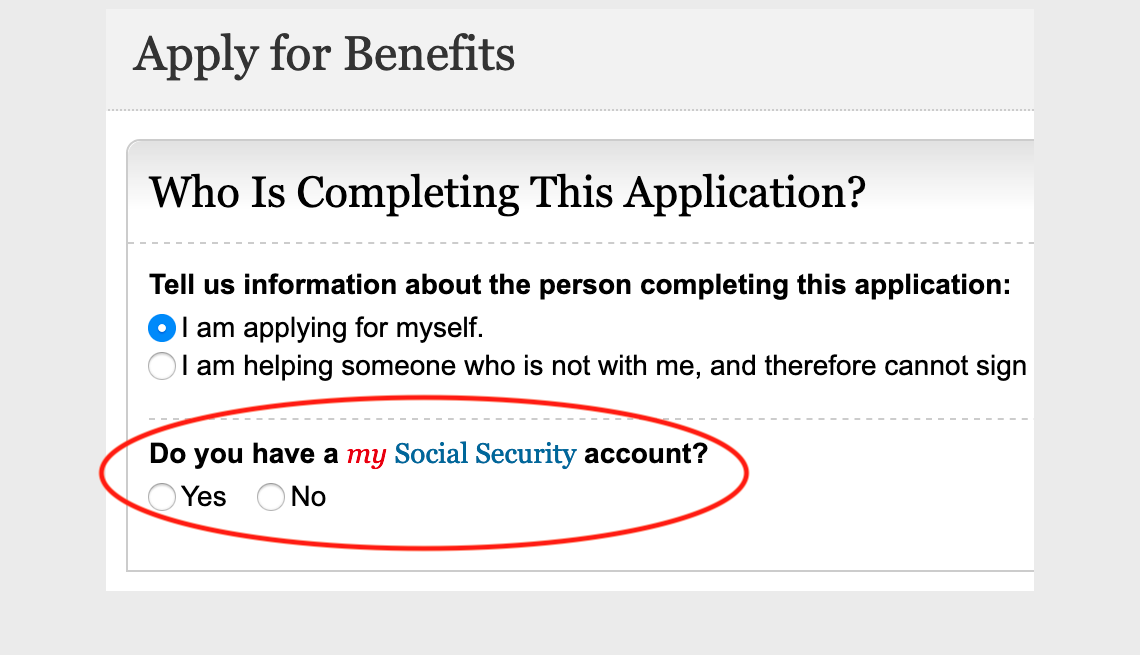
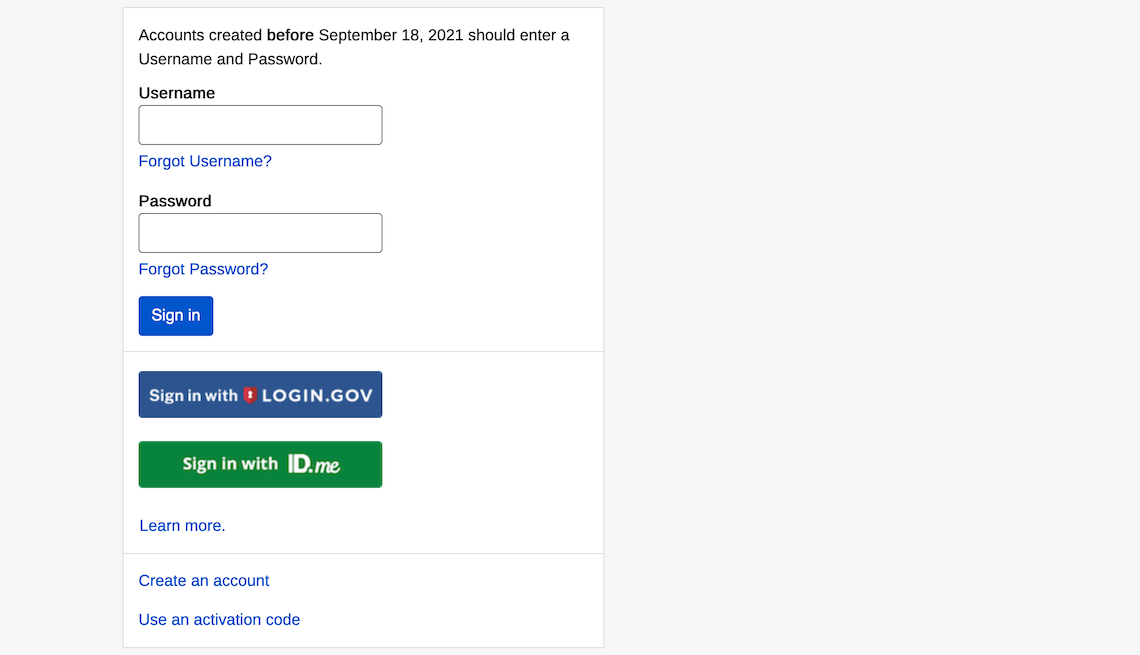
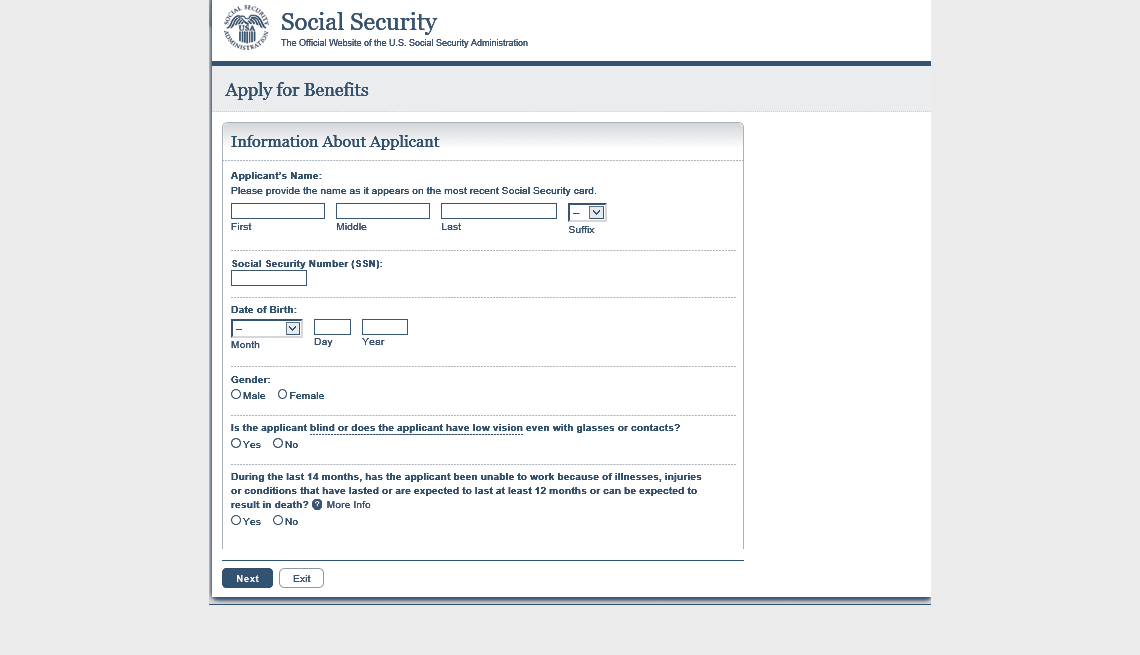
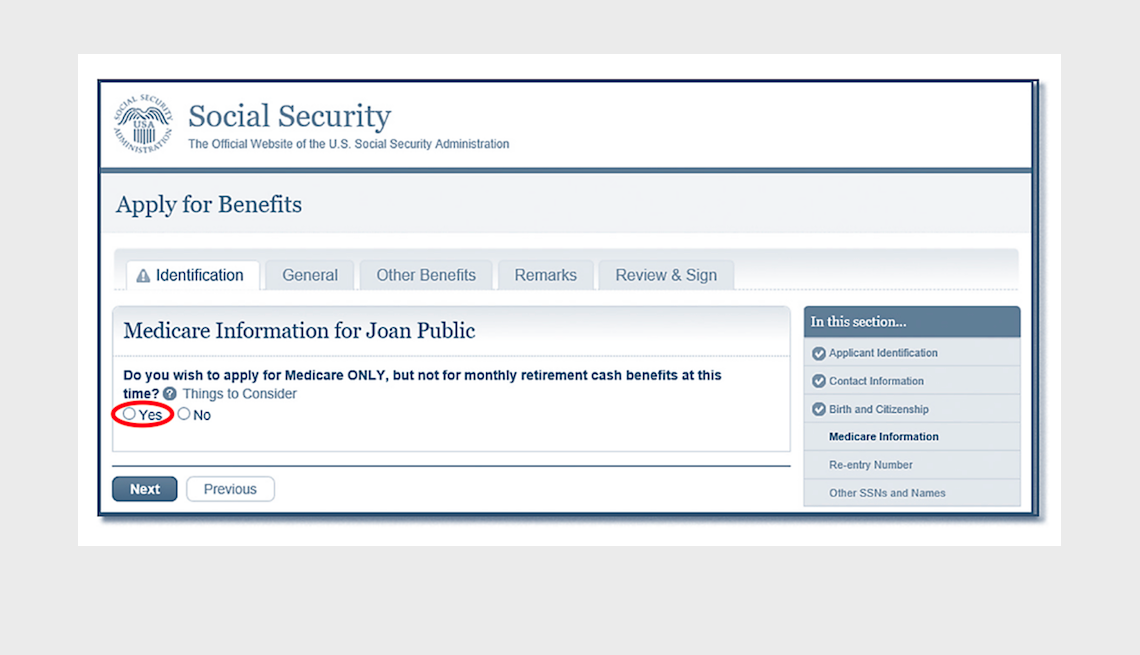
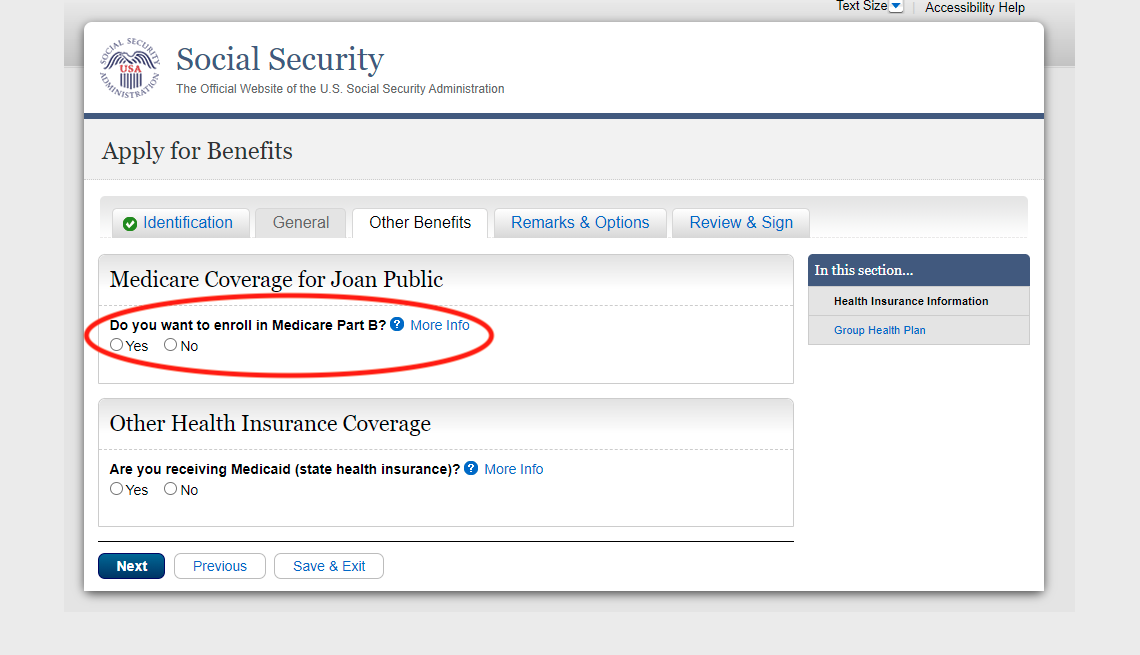
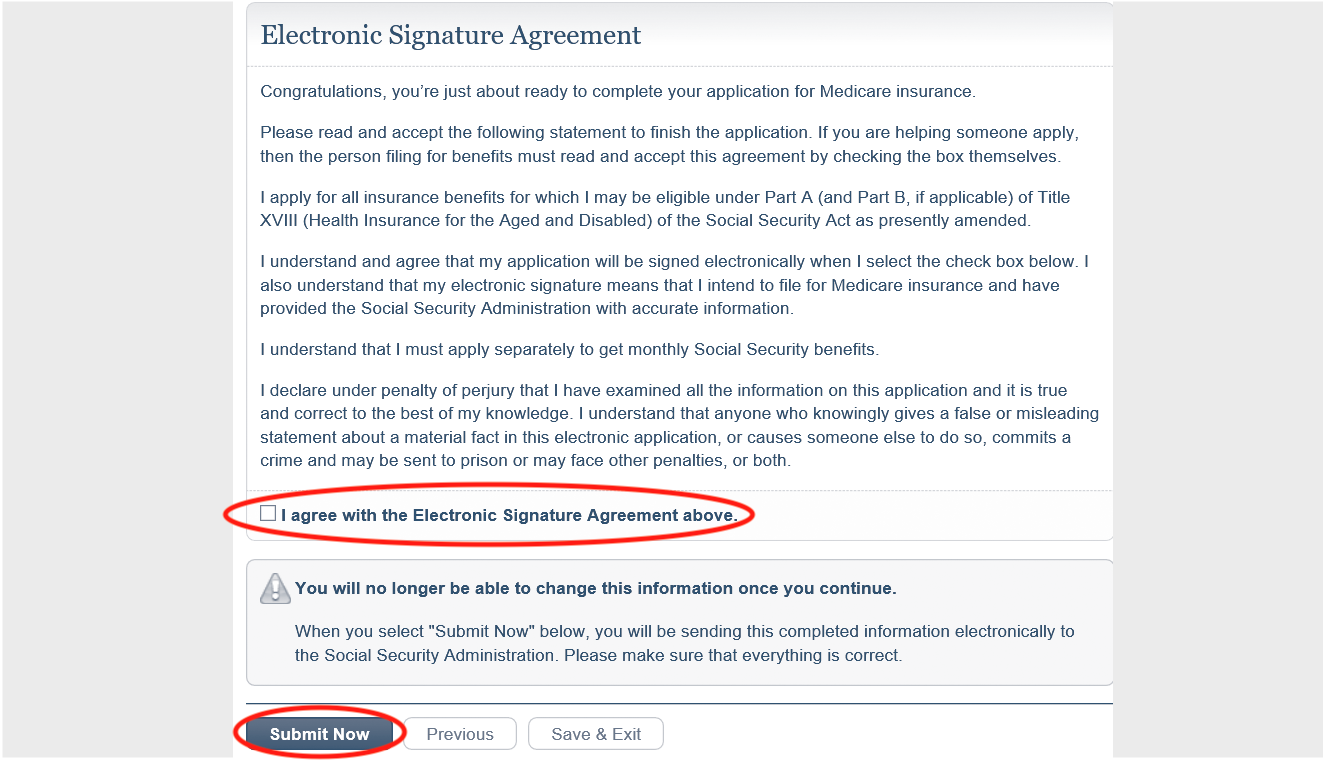
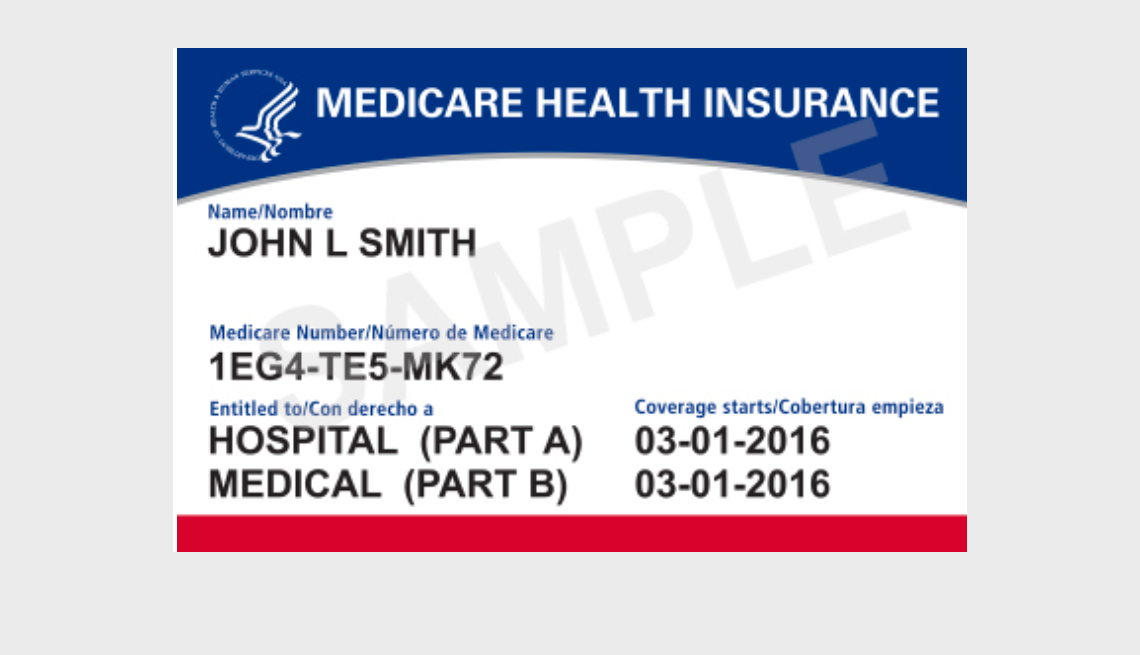

Comments
Post a Comment